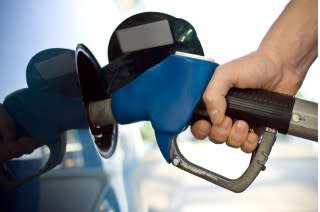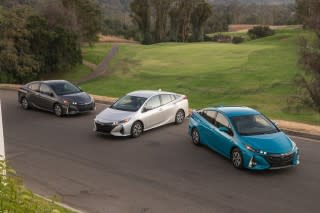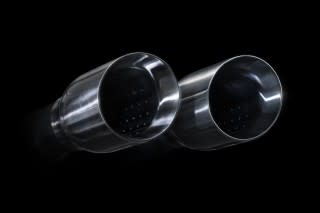EPA will maintain fuel-economy standards through 2025
The U.S. Environmental Protection Agency (EPA) has decided to maintain existing Corporate Average Fuel Economy (CAFE) standards through 2025.
Enacted by the Obama Administration in 2012, the standards call for automakers to achieve a fleet average of 54.5 mpg (equivalent to about 38 mpg in the real world) by that year.
The decision follows the July release of a Technical Assessment Report (TAR) by the EPA, National Highway Traffic Safety Administration (NHTSA), and California Air Resources Board (CARB) on automakers' ability to meet standards for 2022 through 2025.
DON'T MISS: Battle over CAFE standards begins now: will they change for 2022-2025?
In the report, the regulators noted that automakers have the technical ability to meet these standards, but that unexpectedly-high sales of SUVs might cause them to miss the mark slightly.
This was seized upon by industry lobbyists calling for more lenient standards as the EPA begins a so-called midterm evaluation of CAFE.
But in its voluminous "Proposed Determination" on the matter, the EPA said CAFE standards for 2022-2025 should remain in place, largely reiterating points made in the July TAR.

The rules are subject to review until April 2018, but EPA Administrator Gina McCarthy is exercising an option to push for final approval after taking comments through December 30.
This may be a move to finalize the decision before president-elect Donald Trump takes office.
The July TAR found that automakers were capable of meeting the 2025 CAFE goal and, moreover, that it could be met by relying primarily on improvements in the efficiency of internal-combustion engines.
ALSO SEE: Michigan representative: roll fuel economy rules back to 'reasonable' level
Technologies such as transmissions with higher numbers of gears, downsized turbocharged engines with direct injection, lighter body structures, and improvements in aerodynamics could make that possible, the report said.
That would mean large numbers of hybrids, plug-in hybrids, and battery-electric cars wouldn't be necessary, something many automakers would likely appreciate.
Predictably, the EPA's decision to maintain current CAFE standards was praised by environmental groups.

"Loosening standards would only cost consumers more, increase our dependence on oil and put Americans at greater risk from a changing climate," said Luke Tonachel of the Natural Resources Defense Council.
The Sierra Club called the EPA decision "the first stop on the road map to clean transportation."
The decision also drew praise from Consumers Union, which estimates that 2025 CAFE standards could save consumers an average $4,800 over the life of a vehicle, even if gas prices remain at their low averages.
MORE: Three big automaker myths about CAFE: busted by Consumers Union
"The EPA's proposal to maintain robust fuel-economy standards is a big win for consumers," Shannon Baker-Branstetter, energy policy counsel for Consumers Union, said.
The industry response was less enthusiastic.
The Alliance of Automobile Manufacturers criticized what it calls an "extraordinary and premature rush to judgment" on the feasibility of the standards.

"The evidence is abundantly clear that with low gas prices, consumers are not choosing the cars necessary to comply with increasingly unrealistic standards," the group said.
The National Automobile Dealers Association also issued a statement saying that the existing fuel-economy standards would "halt progress on fuel economy," apparently by making new vehicles so expensive that no American will be able to buy them.
NADA said it "looks forward to working with the Trump Administration" to reverse or delay the fuel-economy rules.
_______________________________________________

 Yahoo Finance
Yahoo Finance 
